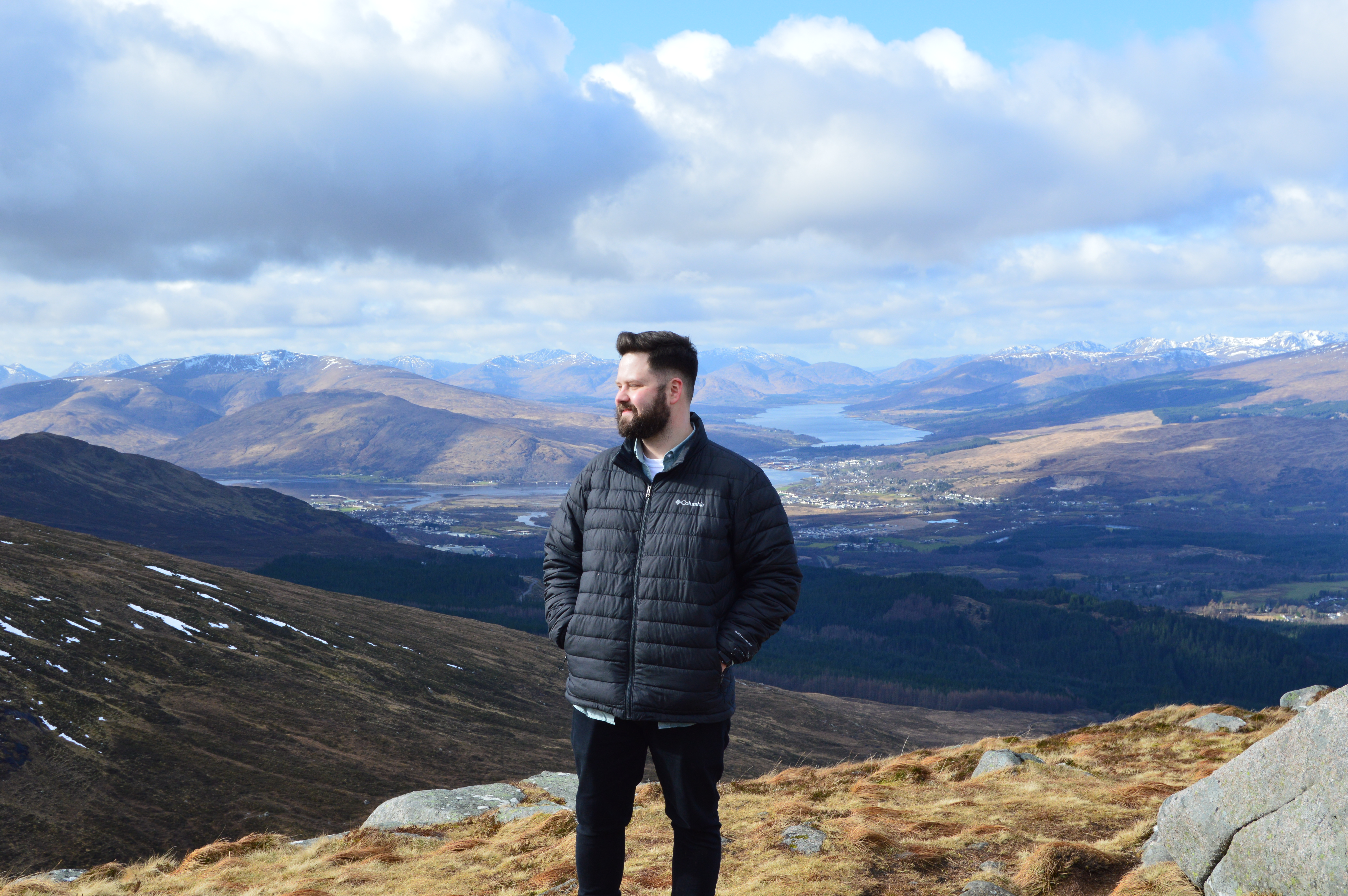Researcher Spotlight - Michael McCaskill
Published: 13 September 2024
PhD student Michael McCaskill details his research on how badgers (Meles meles) contribute to biodiversity through seed dispersal and habitat modification in a variety of habitats in the west of Scotland.
Can you tell us about your background?
I grew up here in Glasgow and after leaving school I worked in construction for 5 years before realising I wanted to change the direction of my career. I knew I wanted to retrain in something I was passionate about so decided to return to education and studied Applied Bioscience and Zoology BSc at the University of the West of Scotland before going on to complete the Ecology and Environmental Biology MRes here at University of Glasgow.
What can you tell us about your PhD?
My PhD started in 2021and explores how badgers (Meles meles) contribute to biodiversity through seed dispersal and habitat modification in a variety of habitats in the west of Scotland, ranging from very rural inner-city sites to very rural habitats. Going forward, I plan to also model how planned anthropogenic pressures may impact any potential biodiversity benefits, particularly in urban areas. My PhD is funded by the Scottish Badgers charity and is being completed part-time, whilst continuing my career as a consultant ecologist for Cairn Ecology Ltd, a consultancy based in South Lanarkshire.
What is the focus of your research?
My Phd has the following foci:
1. To determine if badger setts create conditions suitable for uptake by pioneer plant species/ regeneration of flora beneficial to pollinators and other invertebrates.
2. To determine if external sett conditions create micro-climates suitable for invertebrate species including pollinators.
3. To determine if badger foraging and latrine use contribute significantly to seed dispersal within urban ecosystems.
4. To determine if urban expansion has the potential to prevent any biodiversity enhancement created by badgers.
Why did you decide to do your PhD at SBOHVM?
I really enjoyed my time completing my MRes at Glasgow, I felt I learnt a lot in such a small space of time and really felt I benefitted from the collaborative and social nature of the department. When given the opportunity the continue studying badgers through the University of Glasgow and working with the Scottish Badgers charity, I jumped at the chance, particularly after completing my masters during lockdown.
What do you find most interesting about your work? What has been the most positive aspect so far?
One aspect I have found very interesting is being able to study badgers in unusual sites which would never be considered as ‘optimum habitat’ for the species, particularly in urban areas as it really demonstrates the adaptability of badgers. I have also really enjoyed been given the opportunity to share the knowledge I have developed through my research and career as an ecologist, whether through working as a graduate teaching assistant in the department or engaging with the Scottish Badgers charity members. This is something I have never had exposure to before, so it has been great to discover a new element of research that I really enjoy.
What advice would you give to anyone doing or considering PhD?
Make time for yourself and do the things you enjoy. For me it has been important that I am passionate about my study species, and I think that helps when you are dedicating so much time and effort to your research. Even then, it is important to take time for yourself and engage in the other activities you enjoy. A PhD is an opportunity to grow academically and personally so make the most it and keep it enjoyable!
Tell us about your future plans.
At the time I decided to return to education, I seen it as a way for me to change career and I never imagine that I would ever have the opportunity or capability to continue to this level. I’ve loved my journey in research so far, especially alongside my work as a consultant ecologist. I hope that I continue to use both to benefit our environment and strengthen positive relationships between people and planet.
First published: 13 September 2024


